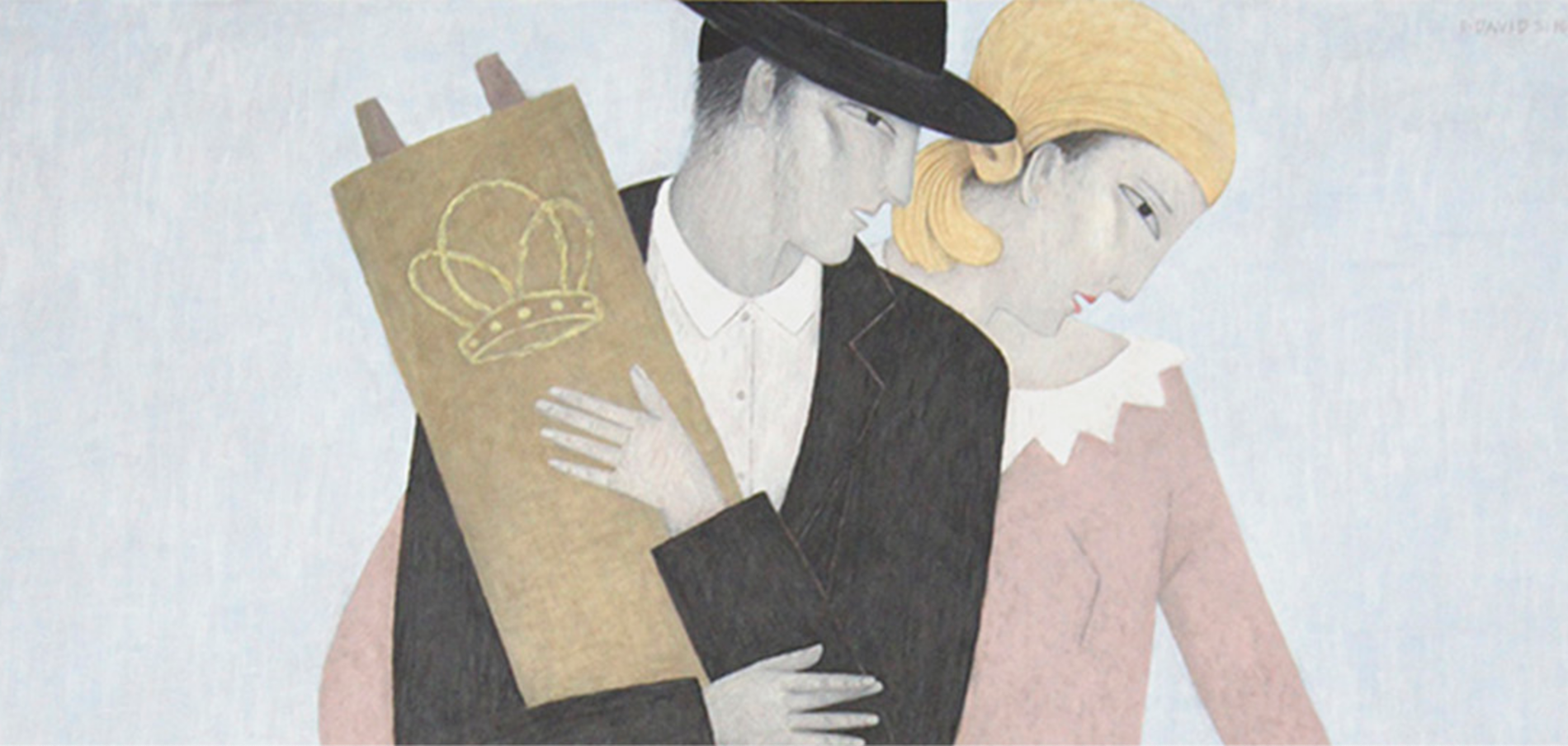
What is the Torah View of Marijuana Use?
Hi JITC-
What is the Torah view of Marijuana use? Is there a difference between medical and recreational use?
Thanks,
T.K.
Dear T.K.-
This past summer, my wife and I vacationed in Utah. One of the tourist destinations recommended online was the Brigham Young University Museum of Paleontology (which is really fun to say). My wife asked me, “Do Mormons even believe in dinosaurs?” I said, “I don’t know; let’s find out!” I Googled the question and was taken to a page on the Latter-day Saints web site that did not take a position, saying instead that “there have been no revelations on this question.” “Why can’t we do that sometimes?” I quipped, only half-joking.
This is one of those areas where I wish we could do that because, whatever I answer, some people are probably going to vehemently disagree. I have some personal thoughts on the subject based on my own understanding of current medical thought but I’m going to limit my remarks to what I have seen in the name of recognized Torah authorities and not indulge my own speculations on the matter.
Genesis 1:29 tells us that “God said, ‘I have given you every seed that produces herbs on the face of the earth, and every tree that has seed-producing fruit—it shall be food for you.” Unlike insects, fish, birds and mammals, every plant is inherently kosher. But, being Genesis chapter 1, this is literally the beginning of the story, not the end.
Deuteronomy 4:15 cautions us, “zealously guard your souls,” which is understood as an obligation to protect our lives and our health. Accordingly, it would be prohibited to ingest any substance that is detrimental to one’s health.
Discussion of marijuana in particular didn’t come about until modern times, though that doesn’t stop people from looking for references or precedent in earlier texts. For example, it has been suggested that the “kaneh bosem” – one of the ingredients in the Temple incense as listed in Exodus 30:23 – is an etymological root for the word “cannabis.” Tempting as this may be, I think it’s a linguistic coincidence and nothing more. “Kaneh bosem” is traditionally translated as “fragrant cane” and Rashi explains the term to preclude species of cane that are not fragrant. Rashi’s explanation of the term seems far more reasonable, and not just because Rashi’s the one who said it.
On the other hand, the Shulchan Aruch (OC 264:1) certainly appears to mean cannabis when it lists “kanabos” as a material that may be used for the wicks of Shabbos candles. This is not surprising, given that hemp has long been recognized as a useful textile, and using it as a wick says nothing about the permissibility of smoking it, or the lack thereof. (It should be noted that the Mishnah Brurah and other poskim recommend against lighting with hemp if other options are available, so if anyone did want to infer something about marijuana from the Shulchan Aruch, it would immediately be mitigated by later authorities.)
The foremost discussion of the permissibility of sparking up comes from Rav Moshe Feinstein, in a teshuvah (responsum) that is cited by literally everyone who addresses this topic. In Iggros Moshe (YD III,35), Rav Moshe lays out half a dozen reasons why smoking marijuana is prohibited. Among these are that marijuana is harmful to both mind and body, in violation of the aforementioned Deuteronomy 4:15; smoking pot causes “the munchies,” which leads to gluttony, which is a separate prohibition (based on Deuteronomy 21:18); marijuana lowers our inhibitions, which leads to a violation of the prohibition against following our hearts and eyes (Numbers 15:39); lighting up violates the obligation to be holy (Leviticus 19:1) as Ramban understands it, causing one to act reprehensibly in ways that are not overtly prohibited. (Rav Moshe has several other rationales that I have not included here. One of these is the concept of dina d’malchusa dina – that we are obligated to obey the law of the land. If marijuana is illegal where you live, that’s it, end of discussion; if it’s legal where you live, then dina d’malchusa doesn’t enter into the equation.)
There are those who would argue that the reasons cited by Rav Moshe in his teshuvah are based on faulty or repudiated science and should therefore no longer apply, They insist that science has determined that rolling a blunt is less harmful than alcohol and is not addictive. To that, I have two responses:
First, it’s not so clear that marijuana is as harmless as people like to say it is. Rabbi Yair Hoffman cites a number of medical professionals who are concerned about “acute and chronic risks, a lack of evidence for efficacy (and) the absence of data on appropriate dosing.” Additionally, the majority of proponents of marijuana are potential users, not medical professionals. Regarding this, Rabbi Hoffman quotes Sharon Levy, assistant professor of pediatrics at Harvard Medical School and chair of the American Academy of Pediatrics committee on substance abuse in the Washington Post that “simply acceding to patient demands for a treatment on the basis of popular advocacy, without comprehensive knowledge of an agent, does not adhere to the ethical standards of medical practice.”
Second, I once heard a lecture from Rabbi Dr. Moshe Tendler, a professor of biology, noted expert on medical ethics, and a son-in-law of Rav Moshe Feinstein. While discussing Rav Moshe’s responsum on cigarettes, Rabbi Tendler extrapolated what Rav Moshe might have said given information that became available since his passing. But, Rabbi Tendler cautioned, Rav Moshe said what he said and we can’t act on hypotheses. If Rav Moshe’s own son-in-law, an expert in the field, hesitates to “update” Rav Moshe’s responsa based on subsequent data, laypeople should certainly think twice before “second guessing” responsa literature as published.
So it seems that respected authorities have prohibited recreational marijuana use and I do not know of authorities who have yet permitted it. But what about medical use?
You may be aware that Judaism takes the sanctity of life very seriously. In fact, one who closes the eyes of a dying person is considered a full-fledged murderer for ending the patient’s life by mere moments (Talmud Shabbos 151b). Nevertheless, Rav Eliezer Yehuda Waldenberg ruled (Tzitz Eliezer, 13, 87) that heavy doses of morphine could be administered if necessary for pain relief despite the fact that doing so might actually shorten the life of the patient. This is because the intention of the treatment is not to hasten the patient’s death but merely to relieve his pain. That being the case, it should go without saying that medical marijuana, whose side effects are far less drastic than death, should be permitted when necessary and properly prescribed.
In fact, in what was initially seen as a bold move, the Orthodox Union has certified a number of medical marijuana products as kosher. Now, given our initial statement from Genesis that all plants are inherently kosher, you might wonder why this is necessary. The OU explains that “the OU certified kosher marijuana product comes in three forms: pills, oils and vapor. While the cannabis plant is inherently kosher, the final product may contain kosher-sensitive ingredients such as alcohol, gelatin and oil.” Accordingly, it is appropriate to seek out kosher-certified alternatives. (This is all the more so in the case of marijuana “edibles.”)
Bottom line, if someone needs medical marijuana as a legitimate form of treatment, it’s no different than any other prescription medication. But when it comes to recreational use, one would be hard-pressed to find an authority who has permitted it.
Sincerely,
Rabbi Jack Abramowitz
JITC Educational Correspondent
Follow Ask Rabbi Jack on YouTube
If you found this content meaningful and want to help further our mission through our Keter, Makom, and Tikun branches, please consider becoming a Change Maker today.







